Related Research Articles

Ephraim Kishon was a Hungarian-born Israeli author, dramatist, screenwriter, and Oscar-nominated film director. He was one of the most widely read contemporary satirists in Israel, and was also particularly popular in German-speaking countries.
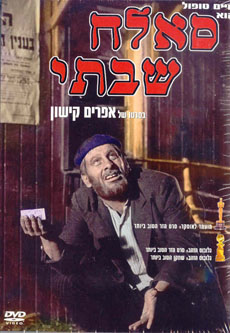
Sallah Shabati is a 1964 Israeli comedy film about the chaos of Israeli immigration and resettlement, as well as the issues Mizrahi Jews faced in the developing Israeli society. This social satire placed the director Ephraim Kishon and producer Menahem Golan among the first Israeli filmmakers to achieve international success. It also introduced to audiences to actor Chaim Topol, who would later achieve even greater recognition with the 1971 American period musical film Fiddler on the Roof.

Reuven "Ruvi" Rivlin is an Israeli politician and lawyer who served as the tenth president of Israel between 2014 and 2021. He is a member of the Likud party. Rivlin was Minister of Communications from 2001 to 2003, and subsequently served as Speaker of the Knesset from 2003 to 2006 and 2009 to 2013. On 10 June 2014, he was elected President of Israel. His term ended on 7 July 2021.
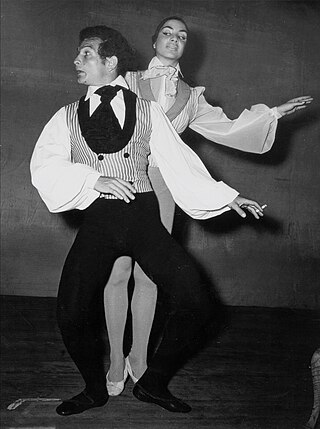
Shaike Ophir was an Israeli film and theater actor, comedian, playwright, screenwriter, director, and the country's first mime.

Bread and Chocolate is a 1974 Italian comedy-drama film directed by Franco Brusati. This film chronicles the misadventures of an Italian immigrant to Switzerland and is representative of the commedia all'italiana film genre. In 2008, the film was included on the Italian Ministry of Cultural Heritage’s 100 Italian films to be saved, a list of 100 films that "have changed the collective memory of the country between 1942 and 1978."
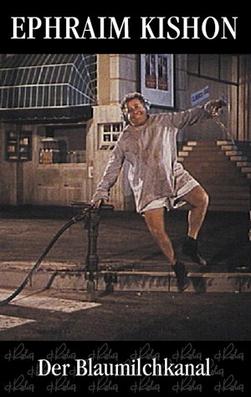
Blaumilch Canal is a 1969 Israeli comedy satire written and directed by Ephraim Kishon, depicting the madness of bureaucracy through a municipality's reaction to the actions of a lunatic. The film is based on a humorous story titled "A Legend About a Canal in Tel Aviv" by Kishon, first published in 1952 and later included in the book A Thousand and One Kids.
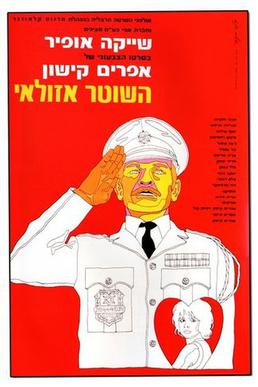
The Policeman is a 1971 Israeli feature film, written, directed and co-produced by satirist Ephraim Kishon. The touching protagonist `The Policeman Azoulay` is played by Shaike Ophir, in what is considered one of his finest performances.

Ervinka is a 1967 Israeli film written and directed by Ephraim Kishon. The film, starring Chaim Topol, is a comical tale of a con man who falls in love with a police officer.

Isaiahu (Shaike) Levi is an Israeli comedian, singer and actor. He is best known for his role in the Gashash HaHiver comedy trio, which won the Israel Prize in 2000.
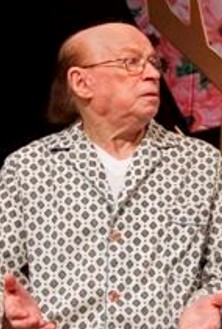
Yaakov Bodo is an Israeli actor, comedian and holocaust survivor.

El Dorado is an Israeli 1963 film directed by Menahem Golan. The script was co-written by him, Leo Filler, and Amatsia Hiuni, based on the play by Yigal Mosenzon.
Fox in a Fix is a 1951 Warner Bros. Merrie Melodies cartoon directed by Robert McKimson. The short was released on January 20, 1951.

Hole in the Moon is a 1964 Israeli avant-garde-satiric movie directed by Uri Zohar.

5 Broken Cameras is a 94-minute documentary film co-directed by Palestinian Emad Burnat and Israeli Guy Davidi. It was shown at film festivals in 2011 and placed in general release by Kino Lorber in 2012. 5 Broken Cameras is a first-hand account of protests in Bil'in, a West Bank village affected by the Israeli West Bank barrier. The documentary was shot almost entirely by Palestinian farmer Emad Burnat, who bought his first camera in 2005 to record the birth of his youngest son. In 2009 Israeli co-director Guy Davidi joined the project. Structured around the destruction of Burnat's cameras, the filmmakers' collaboration follows one family's evolution over five years of turmoil. The film won a 2012 Sundance Film Festival award, it won the Golden Apricot at the 2012 Yerevan International Film Festival, Armenia, for Best Documentary Film, won the 2013 International Emmy Award, and was nominated for a 2013 Academy Award.

The Kafr Qasim massacre took place in the Israeli Arab village of Kafr Qasim on 29 October 1956, when the Israel Border Police killed 49 Palestinian civilians, including 19 men, 6 women and 23 children. Israeli forces had imposed a curfew on the village in the morning of the 29th on the eve of the Sinai War, and when a number of villagers who had been away and were unaware of the curfew returned, they were massacred.

Yosef "Sefi" Rivlin was an Israeli actor and comedian.

The Trail Rider is a 1925 American silent Western film directed by W. S. Van Dyke and starring Buck Jones. Based on the 1924 novel The Trail Rider: A Romance of the Kansas Range by George Washington Ogden, the film is about a trail rider hired to protect ranchers from the actions of a corrupt banker. The film was produced by Fox Film Corp. and was released on February 22, 1925, in the United States. It marked Gary Cooper’s film debut as a stunt rider. It is not known whether the film currently survives.

A Mail Order Hypnotist is a 1912 American silent film drama produced by Chauncey D. Herbert. The film stars Adrienne Kroell and Thmas Flynn. The film was distributed by the General Film Company and released together with The Los Angeles Police Department or The LAPD. The film status is uncertain but a release flier survives which is now at the Margaret Herrick Library at the Academy of Motion Pictures Arts and Sciences. The split reel measured around 800 feet.

Shmuel Rodensky was a Russian-born Israeli actor whose stage, film, and television career in Israel and West Germany spanned six decades. He immigrated to Mandatory Palestine in 1924 and studied drama at the Eretz Israel Theatre in Tel Aviv. After performing with several theatre companies between 1928 and 1948, he joined Habima Theatre in 1949 and became one of its principal players. He was known as "the Israeli Laurence Olivier". In 1968 Rodensky traveled to Hamburg to join the German-language production of Fiddler on the Roof, playing the lead role of Tevye the Dairyman. He performed this role more than 1,400 times throughout West Germany and Switzerland. His notable film roles include the lead in the 1968 Israeli film Tevye and His Seven Daughters, Simon Wiesenthal in the 1974 Anglo-German film The Odessa File, and Jethro in the 1974 BBC television miniseries Moses the Lawgiver. He was the recipient of numerous honors in both Israel and West Germany, including the Federal Service Cross from the Federal Republic of Germany and the Israel Prize.

Anat Waxman is an Israeli actress and comedian.
References
- ↑ "The Fox in the Chicken Coop". Israeli Films. Retrieved 2022-10-11.
- ↑ Leaman, Oliver (2003-12-16). Companion Encyclopedia of Middle Eastern and North African Film. Routledge. ISBN 978-1-134-66251-7.